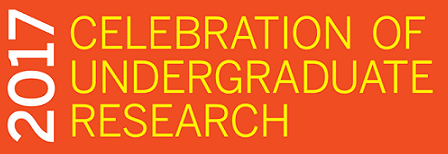Event Title
Evaluation of Online Patient Resources for Differences/Disorders of Sex Development
Location
Science Center A255
Start Date
10-27-2017 4:30 PM
End Date
10-27-2017 5:50 PM
Research Program
Summer Undergraduate Research Fellowship (SURF) at Cincinnati Children's Hospital Medical Center
Abstract
Differences/disorders of sex development (DSD) are congenital conditions in which the sex chromosomes, gonads, or external genitalia are considered atypical. The DSD-Translational Research Network (DSD-TRN) is a 12-site NIH-sponsored clinical research network established with a goal of delivering standardized, high-quality care to patients with DSD and their families. Most people have a limited understanding of DSD, which contributes to stigma and poorly informed medical decision making. Most American internet users search for online health information, and comprehensive education about a medical condition and comprehension of treatment options are necessary for successful patient- and family-centered care and shared decision making. This study assesses the information for patients and families on DSD-TRN member websites and identifies areas for improvement. Validated health information quality assessment tools were used to systematically evaluate the online information: Simple Measure of Gobbledygook (SMOG), Patient Education Materials Assessment Tool (PEMAT) and DISCERN. SMOG determines the reading level of written material. PEMAT assesses the understandability and actionability of written or audiovisual patient education material. DISCERN gauges the clarity and completeness of treatment-related information. Two coders evaluated webpage quality at all DSD-TRN websites using these tools. Across all tools, inter-rater reliability was relatively high, ranging from 74% to 92%, suggesting excellent agreement. The reading level of the information on webpages was higher than that of many adults in the United States. Overall, pages were lacking in understandability and actionability. Treatmentrelated information was insufficient to fully support shared decision-making. Use of the tools exposed common areas that could be improved.
Recommended Citation
Jewell, Tess, "Evaluation of Online Patient Resources for Differences/Disorders of Sex Development" (2017). Celebration of Undergraduate Research. 3.
https://digitalcommons.oberlin.edu/cour/2017/panel_06/3
Major
Gender, Sexuality & Feminist Studies; Biology
Project Mentor(s)
Michelle M. Ernst, Pediatrics, University of Cincinnati; Cincinnati Children's Hospital Medical Center
Document Type
Presentation
Evaluation of Online Patient Resources for Differences/Disorders of Sex Development
Science Center A255
Differences/disorders of sex development (DSD) are congenital conditions in which the sex chromosomes, gonads, or external genitalia are considered atypical. The DSD-Translational Research Network (DSD-TRN) is a 12-site NIH-sponsored clinical research network established with a goal of delivering standardized, high-quality care to patients with DSD and their families. Most people have a limited understanding of DSD, which contributes to stigma and poorly informed medical decision making. Most American internet users search for online health information, and comprehensive education about a medical condition and comprehension of treatment options are necessary for successful patient- and family-centered care and shared decision making. This study assesses the information for patients and families on DSD-TRN member websites and identifies areas for improvement. Validated health information quality assessment tools were used to systematically evaluate the online information: Simple Measure of Gobbledygook (SMOG), Patient Education Materials Assessment Tool (PEMAT) and DISCERN. SMOG determines the reading level of written material. PEMAT assesses the understandability and actionability of written or audiovisual patient education material. DISCERN gauges the clarity and completeness of treatment-related information. Two coders evaluated webpage quality at all DSD-TRN websites using these tools. Across all tools, inter-rater reliability was relatively high, ranging from 74% to 92%, suggesting excellent agreement. The reading level of the information on webpages was higher than that of many adults in the United States. Overall, pages were lacking in understandability and actionability. Treatmentrelated information was insufficient to fully support shared decision-making. Use of the tools exposed common areas that could be improved.



Notes
Session II, Panel 6 - Digital | Resources
Moderator: Cortney Smith, Mellon Postdoctoral Fellow in Rhetoric & Composition